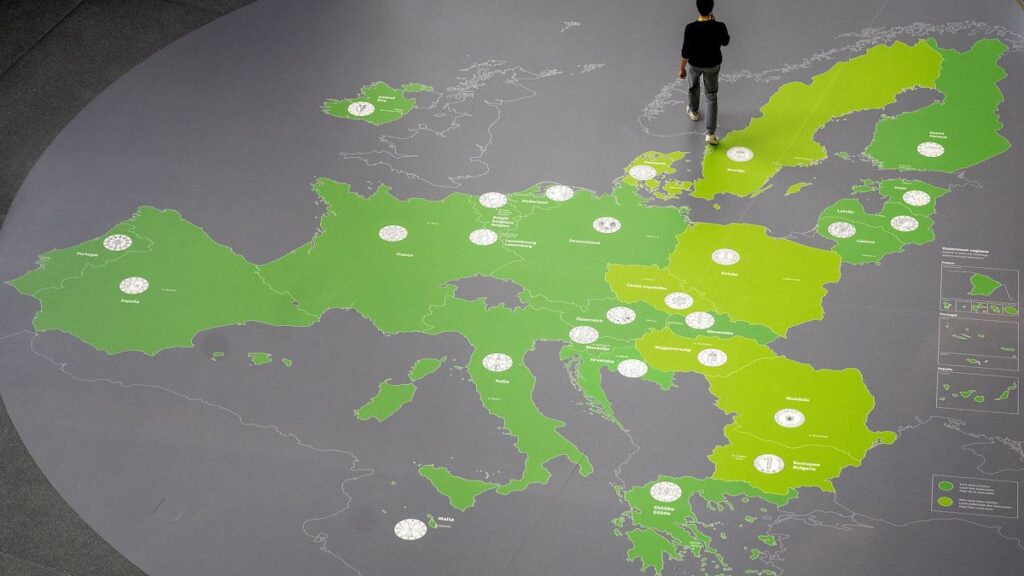Eurozone business activity expanded in August as the services sector surged, especially in France, due to the Olympics, but manufacturing continued to contract and Germany’s private sector economy weakened, raising concerns about a possible recession.
advertisement
The euro zone’s private sector grew better than expected in August, according to preliminary Purchasing Managers’ Index (PMI) surveys, but signs of underlying weakness remain, particularly in Germany and the euro zone’s manufacturing sector.
The euro zone’s composite PMI index rose to 51.2 this month, up from 50.2 in July and above expectations of 50.1.
This marked the sixth consecutive expansion in euro area private sector activity and the fastest expansion in the past three months.
However, manufacturing across the euro area continued to contract, with the manufacturing PMI production index falling to 45.6, the worst reading in eight months.
Growth was mainly driven by the services sector, with the Services PMI business activity index rising to 53.3, above the previous and expected 51.9, marking the strongest expansion in four months.
Most of the expansion was driven by France, where services activity reached its highest level since May 2022, thanks in part to the Paris Olympics.
France’s flash services sector PMI jumped to 55.0, its best performance since the second quarter of 2022, when GDP growth reached 0.4%.
Normann Liebke, an economist at the Hamburg Commercial Bank, said any Olympics-related boost to the economy would be temporary due to a worsening employment situation, lower output expectations and a smaller backlog of work.
Weak demand signals challenges ahead, price pressures provide relief
Although business activity picked up in August, new orders across the euro area fell for a third consecutive month, with new orders in manufacturing falling by the most since the end of last year.
Private sector employment also fell slightly, ending seven consecutive months of increases.
Encouragingly, inflationary pressures eased, with services input prices rising at the slowest pace since April 2021, while manufacturing cost inflation remained unchanged from July’s 18-month high.
“A closer look at the numbers suggests that the underlying fundamentals may be shakier than they appear,” commented Dr. Cyrus de la Rubia, chief economist at Hamburg Merkbank, who noted that France’s Olympics-related surge may not be sustainable and that manufacturing woes could soon weigh on the services sector.
German economy in ‘real shambles’
In Germany, the euro zone’s largest economy, the private sector contracted at its fastest pace in five months, with the composite PMI output index falling to 48.5, below expectations of 49.2.
Expansion in the services sector slowed, with the Services PMI index falling to 51.4 from 52.5, below the forecast of 52.3. The decline in private sector performance was due to a weakening of underlying demand. German companies are becoming increasingly pessimistic about growth prospects next year, citing concerns about the state of the economy as well as political and geopolitical uncertainties.
German manufacturing contracted for the 27th consecutive month, with the PMI index falling more than expected to 42.1, the worst drop since April.
“These figures are really bad. The slump in German manufacturing deepened in August and shows no signs of recovery,” said de la Rubia, who warned that manufacturing woes were starting to spread to the services sector, raising the possibility of a second consecutive quarter of contraction in Germany.
An expected ECB rate cut may provide some relief, but Dellalrubia warned that overall sentiment remains poor.



